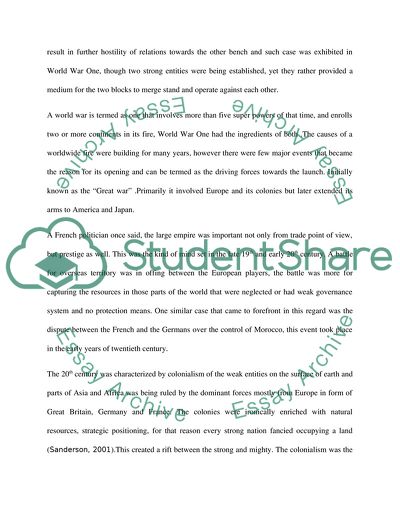Cite this document
(What Were the Main Causes of the First World War Essay Example | Topics and Well Written Essays - 1750 words, n.d.)
What Were the Main Causes of the First World War Essay Example | Topics and Well Written Essays - 1750 words. https://studentshare.org/history/1767923-what-were-the-main-causes-of-the-first-world-war
What Were the Main Causes of the First World War Essay Example | Topics and Well Written Essays - 1750 words. https://studentshare.org/history/1767923-what-were-the-main-causes-of-the-first-world-war
(What Were the Main Causes of the First World War Essay Example | Topics and Well Written Essays - 1750 Words)
What Were the Main Causes of the First World War Essay Example | Topics and Well Written Essays - 1750 Words. https://studentshare.org/history/1767923-what-were-the-main-causes-of-the-first-world-war.
What Were the Main Causes of the First World War Essay Example | Topics and Well Written Essays - 1750 Words. https://studentshare.org/history/1767923-what-were-the-main-causes-of-the-first-world-war.
“What Were the Main Causes of the First World War Essay Example | Topics and Well Written Essays - 1750 Words”. https://studentshare.org/history/1767923-what-were-the-main-causes-of-the-first-world-war.


